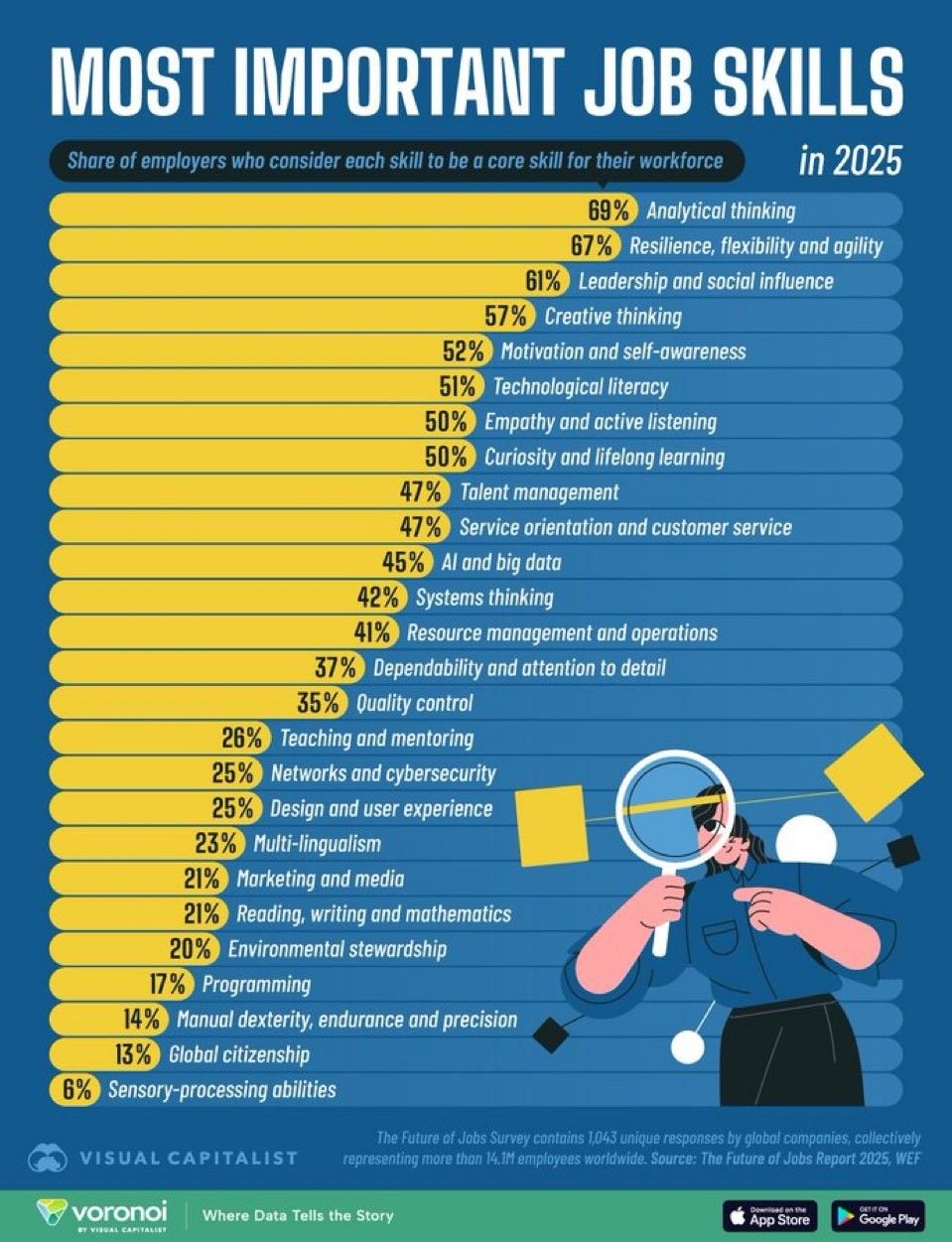The study, based on more than 1,000 responses from large companies globally, identifies analytical thinking as the most sought-after skill by employers, mentioned by 69% of respondents. Next come resilience, flexibility, and agility (67%), as well as leadership and social influence (61%).
The report highlights a clear shift toward so-called "soft skills," such as empathy, active listening, and the ability to learn continuously, all with over 50% relevance among participants. Motivation, self-awareness, creative thinking, and technological literacy are also gaining importance.
In contrast, traditional technical skills such as programming (17%), quality control (35%), or knowledge of networks and cybersecurity (25%) lose prominence compared to human skills and critical thinking.

It is also noteworthy that areas such as global citizenship (13%), fluency in multiple languages (23%), or manual dexterity (14%) are undervalued. Even sensory processing skills, essential in some sectors, appear at the bottom of the list, with only 6% relevance.
The new work landscape, therefore, points to workers with strong analytical skills, high adaptability, and human skills that are difficult to automate.















